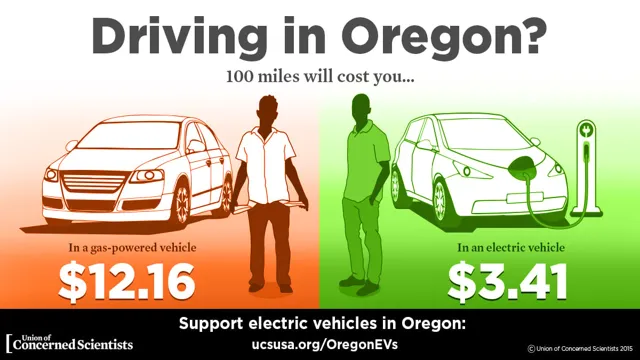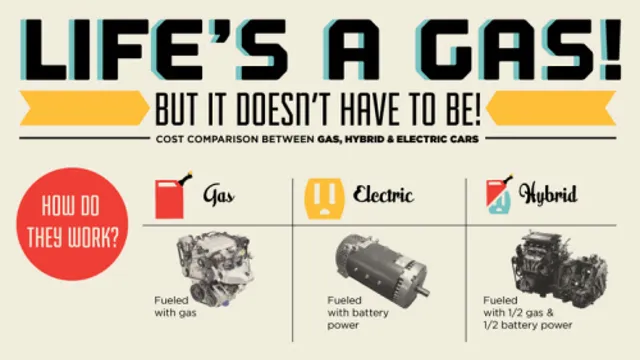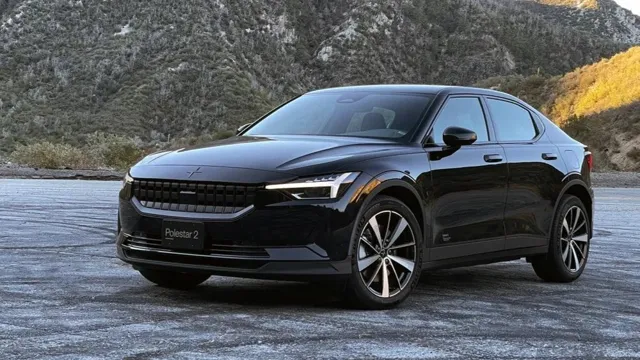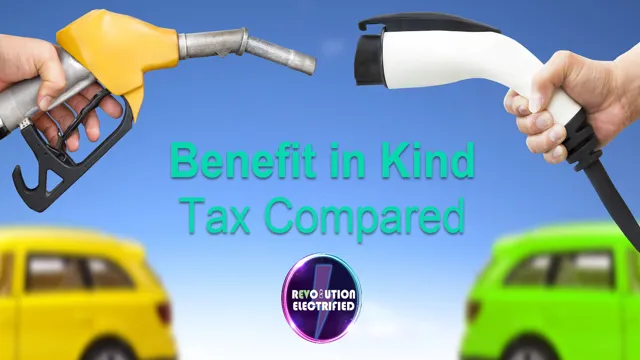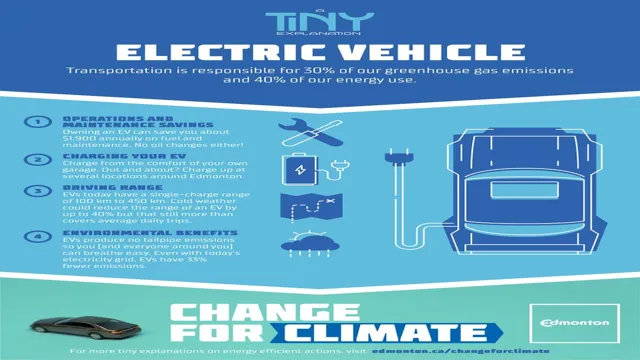Revolutionizing Transportation: The Surprising Benefits of Fueling Electric Cars
When we think of electric cars, the first thing that comes to mind is their environmentally-friendly nature and how they help reduce our carbon footprint. But did you know that electric cars can also save you a ton of money on fuel costs? That’s right! With the rising fuel prices and the increasing efficiency of electric cars, making the switch to electric can be a smart financial decision. Let’s break it down.
Electric cars use rechargeable batteries instead of gasoline, which means that you won’t have to spend money on fuel anymore. Charging an electric car at home is much cheaper than filling up a gas tank at a petrol station, and the cost per mile for an electric car is significantly lower. Plus, electric cars come with a range of features that help you monitor and optimize your energy consumption, such as regenerative braking systems that recharge the battery pack while slowing down, and energy-efficient driving modes that stretch your battery’s range.
While the initial cost of an electric car may be higher than that of a traditional vehicle, you’ll save a lot of money in the long run, especially if you’re a frequent driver. This makes electric cars an investment that pays off. So, if you’re looking to save money and make a positive impact on the environment, switching to an electric car might be the perfect choice for you.
Electric Cars vs Gasoline Cars
One of the most significant fuel benefits of electric cars over gasoline cars is the cost savings. Electric cars are more efficient and use less energy to travel the same distance, resulting in lower fuel costs. Additionally, the price of electricity is more stable than gasoline prices, which can fluctuate rapidly based on supply and demand.
Another fuel benefit of electric cars is their lower environmental impact. Electric cars do not emit harmful pollutants, as gasoline cars do, which can have a negative effect on air quality and public health. While electric cars may require more initial investment, in the long run, they can save drivers money on fuel and contribute to a cleaner environment.
Therefore, electric cars are a great option for those who prioritize fuel efficiency and a cleaner planet.
Statistics on Fuel Costs for Both Cars
When it comes to fuel costs, electric cars have a clear advantage over gasoline cars. The average cost to fully charge an electric car is about $14, whereas filling up a gas tank can cost upwards of $40. Additionally, electric cars have a much lower cost per mile compared to gasoline cars.
On average, it costs about 4 cents per mile to drive an electric car, while it can cost up to 10 cents per mile to drive a gasoline car. Over time, these savings can really add up, making electric cars a more affordable option in the long run. However, it is important to note that the initial cost of purchasing an electric car can be much higher than a gasoline car.
It is important to consider both the short-term and long-term costs when making a decision on which type of car to purchase. Overall, if you are looking to save money on fuel costs and reduce your carbon footprint, an electric car may be the better option for you.
Comparison of Fuel Efficiency
When it comes to fuel efficiency, electric cars are far better than gasoline cars. Electric cars use rechargeable batteries to power an electric motor, whereas gasoline cars run on gasoline or diesel fuel. Electric cars are more efficient because they convert 60% to 70% of the battery’s stored energy into driving the wheels, while gasoline cars only convert roughly 20% of the energy stored in gasoline.
This means that electric cars can travel more miles per unit of energy compared to gasoline cars. Also, electric cars do not produce any emissions, making them environmentally friendly. In contrast, gasoline cars release pollution into the environment, contributing to global warming.
Overall, electric cars have proven to be a more efficient and sustainable option compared to gasoline cars.
Additional Ways to Save on Fuel with Electric Cars
Electric cars have a significant fuel benefit over traditional gasoline vehicles. However, there are additional ways to save on fuel with electric cars that many people may not be aware of. For starters, driving at a slower speed can help extend the car’s battery life, and using regenerative braking can help recharge the battery while driving.
Additionally, planning routes ahead of time to avoid heavy traffic can save both time and energy, as idling in traffic can deplete the battery quickly. Lastly, charging the car overnight during off-peak hours can save money on electricity costs, much like how using appliances during off-peak hours can save money on household energy bills. Overall, electric cars offer a multitude of ways to save on fuel and maintenance costs, making them an excellent choice for those looking to reduce their carbon footprint while saving money in the long run.
Home Charging Stations
One of the great advantages of owning an electric car is the ability to save on fuel costs. However, there are additional ways to save even more money in the long run. Installing a home charging station is one great way to do so.
Not only does it make charging your car more convenient, but it also allows you to take advantage of cheaper electricity rates during off-peak hours. This can lead to significant savings over time, especially if you regularly charge your car overnight. Plus, with the increase in electric car ownership, many power companies offer rebates for installing home charging stations, making it even more affordable.
So, if you’re looking to maximize your savings with your electric car, consider investing in a home charging station.
Regenerative Braking
Regenerative braking is a technology used in electric cars that saves fuel by converting the kinetic energy produced during braking into electricity. This electricity can then be used to power the car’s battery, reducing the need for it to draw additional power from the grid. Regenerative braking is not a new concept; it has been used in electric trains and hybrid vehicles for many years.
However, in recent times, it has become more popular in electric cars due to advancements in battery technology and motor efficiency. By using regenerative braking, electric car owners can increase their vehicle’s range and save money on fuel costs. It’s just another way that electric cars are changing the way we drive and helping us reduce our dependence on fossil fuels.
Reduced Maintenance Costs
Reduced maintenance costs of electric cars are just one of the many benefits of making the switch from gasoline-powered vehicles. Not only do electric cars require less overall maintenance due to fewer moving parts, but there are also additional ways to save on fuel costs. For example, regenerative braking allows the car to recharge its battery while braking, reducing the need for frequent charging.
Additionally, many electric cars come equipped with features such as battery health monitoring and predictive maintenance that can alert drivers to potential issues before they become major problems. By taking advantage of these features and adopting good driving habits, such as keeping tires properly inflated and avoiding jackrabbit starts, electric car owners can further reduce maintenance costs and extend the lifespan of their vehicle. With all of these benefits, it’s no wonder that more and more people are choosing to make the switch to electric cars.
Environmental Benefits of Choosing Electric Cars
Fuel benefit electric cars are becoming increasingly popular due to their environmental benefits. These cars release fewer emissions into the atmosphere, which helps to reduce the impact on the environment. Electric cars do not use traditional fuel, which reduces the amount of fossil fuels needed to power the transportation industry.
Instead, they rely on electricity, which can be generated from renewable sources such as solar, wind, or hydro power. By choosing electric cars, we can significantly reduce our carbon footprint and help combat climate change. Furthermore, electric cars have no exhaust system, which means that there is no risk of toxic fumes being released into the air.
Overall, the environmental benefits of electric cars make them a great choice for anyone looking to reduce their impact on the planet.
Reduced Carbon Footprint
Reduced Carbon Footprint Electric cars have gained immense popularity due to their environmental benefits. One of the most significant impacts is the reduction in carbon footprint. Traditional cars run on gasoline, which releases harmful emissions that harm the environment.
However, electric cars are powered by batteries, eliminating the need for fossil fuels. As a result, they produce significantly fewer emissions or none at all. Choosing electric cars can help in reducing air pollution and greenhouse gas emissions, contributing to a cleaner and healthier environment.
By switching to an electric car, you can do your part in mitigating climate change and its adverse effects. Moreover, electric cars also offer a more sustainable way of driving because the electricity can be generated from renewable sources such as wind, solar, and hydropower. This means that electric cars produce zero emissions from cradle to grave, from manufacturing to disposal.
Overall, electric cars are more than just a solution for reducing carbon emissions; they offer a smarter and more sustainable transportation alternative for a better future. By making a simple switch to an electric car, you can help protect the environment and save money, all while driving in style and comfort.
Less Dependence on Fossil Fuels
Electric cars have several environmental benefits, one of which is less dependence on fossil fuels. These vehicles rely on electricity from the grid, which can be generated through renewable sources such as wind, solar, and hydro power. By reducing the need for traditional gasoline and diesel, electric cars reduce the emission of harmful pollutants that contribute to air and water pollution.
Additionally, electric cars are more energy-efficient than their combustion engine counterparts, requiring less energy to move the same distance. This means that less energy is wasted in the form of heat, making electric cars a more sustainable mode of transportation. overall, electric cars are a step towards a greener and more sustainable future, one in which we can reduce our reliance on fossil fuels and protect our environment.
So, choosing an electric car can be a smart and environment-friendly choice for individuals who want to reduce their carbon footprint.
Conclusion
In conclusion, the rise of electric cars is more than just a trend towards eco-friendliness – there are tangible benefits to be had from going electric. With fuel benefit electric cars, drivers can enjoy savings on fuel costs, reduced emissions, and a smoother, quieter driving experience that can only come from the magic of electric power. So, the next time you’re considering which car to buy, don’t forget to take into account the myriad benefits that fuel benefit electric cars offer compared to their gas-guzzling counterparts.
After all, in a world where every penny counts and sustainability is more important than ever, going electric is a smart, stylish choice that benefits both the planet and your pocketbook.”
FAQs
What is a fuel benefit for electric cars?
A fuel benefit for electric cars relates to the fact that charging an electric car is significantly cheaper than filling up a petrol or diesel car. This can result in significant savings for the car owner.
Are there any tax incentives for purchasing electric cars?
Yes, many countries offer tax incentives for purchasing electric cars. This can include reduced or waived sales tax, income tax credits, or other incentives to encourage the adoption of electric vehicles.
How far can an electric car go on a single charge?
The range of an electric car depends on the specific model and the size of the battery. Most electric cars have a range of between 100-300 miles, although some high-end models can travel up to 500 miles on a single charge.
What is the environmental impact of electric cars compared to petrol or diesel cars?
Electric cars have a much lower environmental impact than petrol or diesel cars, as they produce zero emissions and do not contribute to air pollution. They are also more energy-efficient, as less energy is wasted in the process of converting fuel into mechanical motion.
